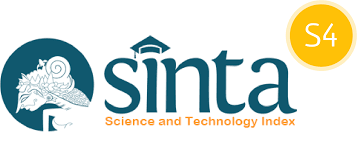PENERAPAN SANKSI PIDANA TERHADAP PEMALSUAN AKTA OTENTIK YANG DILAKUKAN OLEH NOTARIS
DOI:
https://doi.org/10.18196/mls.v1i1.7526Keywords:
Akta otentik, Pemalsuan, Sanksi Pidana, Tindak PidanaAbstract
Notaris merupakan pejabat umum yang berwenang membuat akta otentik, yang mana pembuatan akta otentik tersebut tidak dikhususkan kepada Pejabat umum lainnya. Akta terebut dapat mempunyai fungsi formil (formalitatis causa). Berdasarkan hal tersebut, maka akta otentik dapat diartikan memiliki kekuatan pembuktian yang sempurna. Dalam halnyaterjadi suatu tindakkan hukum berupa pemalsuan akta otentik terdapat beberapa sanksi yang dapat dikenakan kepada pihak yang melakukannya. Metode yang digunakan di dalam penelitian ini adalah penelitian secara yuridis normatif. Adapun Teknik pengumpulan bahan hukum menggunakan bahan hukum primer dan bahan hukum sekunder. Hasil penelitian adalah (1) Perumusan dari unsur-unsur tindak pidana terhadap pemalsuan akta otentik yang dilakukan oleh notaris adalah bahwa notaris T.E terbukti telah memenuhi unsur subjektif tindak pidana yaitu melakukan kejahatan pemalsuan akta autentik. Berdasarkan perumusan unsur-unsur pidana dari bunyi Pasal 263 KUHP mengenai pemalsuan akta otentik yang dilakukan oleh Notaris tidak bisa diterapkan kepada pelaku yakni Notaris yang memalsu akta otentik. (2) Penerapan sanksi pidana terhadap pemalsuan akta autentik yang dilakukan oleh notaris yaitu dimana notaris terlibat dalam suatu tindak pidana apabila setiap akta yang dibuat Notaris tidak bersumber pada aturan yang telah diatur dalam Undang-Undang Jabatan Notaris (UUJN) 2 Tahun 2014, dan dapat dijatuhi hukuman berdasarkan ketentuan pasal 264 ayat (1) dan 266 ayat (1) KUHP isinya sama yaitu tentang pembuatan akta dengan kesengajaan memakai akta seolah-olah isinya benar.
Downloads
Published
Issue
Section
License
Copyright
Authors who publish papers in this journal agree to the following terms:
Authors retain copyright. Authors are permitted to copy and redistribute the journal's published version of the work non-commercially (e.g., post it to an institutional repository or publish it in a book)
Authors are permitted and encouraged to post their work online (e.g., in institutional repositories or on their website) prior to and during the submission process, as it can lead to productive exchanges, as well as earlier and greater citation of published work (See The Effect of Open Access).
This journal is using Attribution-NonCommercial-ShareAlike 4.0 International. You are free to:
- Share — copy and redistribute the material in any medium or format
- Adapt — remix, transform, and build upon the material
The licensor cannot revoke these freedoms as long as you follow the license terms, which include the following:
- Attribution — You must give appropriate credit, provide a link to the license, and indicate if changes were made. You may do so in any reasonable manner, but not in any way that suggests the licensor endorses you or your use.
- NonCommercial — You may not use the material for commercial purposes.
- ShareAlike — If you remix, transform, or build upon the material, you must distribute your contributions under the same license as the original.
- No additional restrictions — You may not apply legal terms or technological measures that legally restrict others from doing anything the license permits.
Creative Commons Attribution-NonCommercial-ShareAlike (CC BY-NC-SA)

This work is licensed under a Creative Commons Attribution-NonCommercial-ShareAlike 4.0 International License.



